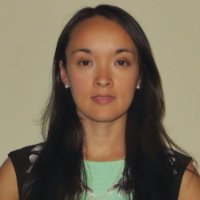Alumni Profile: M. Indriati Hood-Pishchany, M.D., Ph.D. (’14)
by Abin Abraham (M2)
 Dr. M. Indriati Hood-Pishchany, M.D., Ph.D.
Dr. M. Indriati Hood-Pishchany, M.D., Ph.D.
Fellow in Infectious Diseases
Boston Children’s Hospital
Vanderbilt MSTP Graduate, 2014
Dr. Indriati Hood-Pishchany graduated from the Vanderbilt MSTP in 2014 and went on to complete residency training in Pediatrics in the Boston Combined Residency Program at Boston Children’s Hospital and Boston Medical Center. She participated in the Accelerated Research Pathway, completing residency in 2016. She is currently a first year Infectious Diseases Fellow at Boston Children’s Hospital. Her graduate research focused on mechanisms of antibiotic resistance and pathogenesis of Acinetobacter baumannii and she completed her research in the laboratory of Dr. Eric Skaar. She is a fellow in the Pediatric Scientist Development Program, and her fellowship research will investigate the role for female reproductive tract microbiota in pregnancy outcomes.
Reflecting on your journey thus far as an MD/PhD, what has been the most impactful training experience in preparing you to establish your career?
“My time in the laboratory has probably had the strongest impact on my future career. I certainly gained many practical skills – designing experiments, formulating scientific questions, honing my scientific communication, grant-writing, pipetting, etc. More importantly, though, I was surrounded by talented (and fun) colleagues and had an excellent mentor and scientific role model. It was really that environment that shaped my scientific curiosity, and inspired me to continue on the path of the physician scientist.”
Looking back on your training, what is one thing you would do differently? What is the most important piece of advice you would give to current MSTP trainees?
“I am not sure that there is anything that I would do differently, except maybe to try to stay more connected to research during my clinical years. I think the best advice I can give current trainees is to really take advantage of the stage of training you are in now. Graduate school and medical school are unique periods in your life and career where one of your primary responsibilities is to learn. Keep an open mind, ask questions, go to conferences, travel, build relationships. There is no better time than now!”
In managing the demands brought on by residency and fellowship training, how do you maintain a positive work-life balance?
“It might sound cliché, but I think the key really is finding the few things outside of work that matter most to you, and making (sometimes scheduling) time for them. For me, that was spending time with my husband and getting outside (thankfully my husband also happens to enjoy outdoor pursuits). I tried to take advantage of every weekend off to get away, even if just for half a day, to hike or climb or even just explore a new neighborhood. I think it also helps to find a way to keep your day-to-day household responsibilities (like laundry and grocery shopping) from taking up all of your free time. How exactly to do that will depend on the person.”
What is the best part of residency? What is the most challenging aspect? What was the biggest surprise?
“I am tempted to say that the best part of residency is that it is finite, but that seems a little negative. Residency was a unique and challenging experience, and also incredibly rewarding. But, if I had the choice, I would neither do anything differently, nor do it again! The opportunity to really connect with your patients and take responsibility for their care in a way that is very different from medical school makes even the most challenging days worthwhile. The most challenging part is that despite some progress, we still work in a broken system, and we come up against the limitations of that system every day. For me, I think the biggest surprise was that it really was not that bad. I have to admit that I had visions of residency being this daunting, exhausting, all-encompassing, never-ending, insurmountable thing. But it’s not so bad, most of it is pretty fun actually, and it is finite.”
In a landscape that is constantly evolving, what advice do you have to make the most of our scientific and clinical training?
“I think that one of the greatest benefits of our training is the breadth of knowledge and experience that we gain particularly in these early stages in our careers. My advice is just to keep an open mind. I will be the first to admit that I did not always approach lectures or certain clinical rotations with as much enthusiasm as others. But there is a lot to learn from those outside of your chosen discipline and you never know from whom or from where the inspiration for your next project or even your career may come.”
